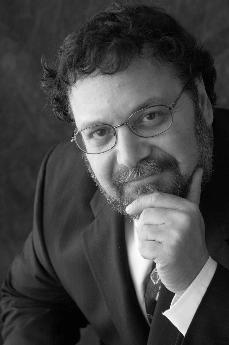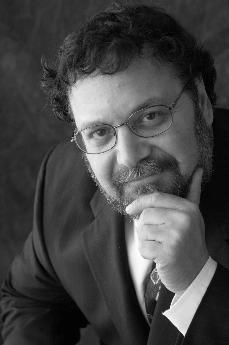
(Lawrence University)
Young: Tell me about your background and how you came to Lawrence.
Metalsky: I’m originally from Brooklyn, New York. I lived my younger life in Westbury, East Meadow, Long Island. When I started going to college I had an interesting experience. I went to the University of California, Berkeley. I was eager to see what the country was like, and the west coast. I went back to New York for grad school and attended SUNY at Stony Brook for clinical psychology. I started up a really interesting collaboration with my former mentor, Glen Abramson. She and I were working on some theory and research on cognition and depression, which later became well known in terms of causes and treatment of depression. She had taken a job and asked if I would join her at the University of Wisconsin-Madison, and I had lived on both coasts but never in the middle, so I decided I would check that out. I had seen Madison before I went cross country to Berkeley, and it seemed like Madison and Berkeley were fairly similar, so I finished off there in 1986 and did a post-doc year in the University of Wisconsin medical school, in the psychiatry department. After that I took a teaching job at the University of Texas at Austin, so I took that job in 1987. I discovered while I was there that I really enjoyed working with undergraduates, and at places like that, where the focus is on research, I felt like undergrad students got the short end of the stick. My grad students got all my attention, but when the undergrad students were supervised by the grad students, they hardly got any of my personal attention. I found myself gravitating more and more to working with undergraduates. Then, I had a first child and a family, and I had family at the time in both New York and Wisconsin, so that’s when Lawrence came into the picture. I came here in 1992, and this year will be my 18th graduation.
Young: How did you get interested in psychology? Elaborate more on your research focus.
Metalsky: I started in my undergraduate work being interested in sociology. Like a lot of students then and a lot of students now, I was a bit confused about what sociologists did and what psychologists did – like many students now, who think that they want to do X, Y and Z but don’t have a label for it. For example, many students think they want to be a sociologist, but what they really have in their head is a psychologist, and that’s what happened to me. Turned out what I wanted to do was clinical psychology. I [also] started as an undergrad in psychology, I think, because I have a brother with schizophrenia. He was my older brother, so since I was 11 or 12 I watched my family going through this, and how the field at the time, in the ’60s, handled it. I don’t think I realized that was the main reason until after the fact, but looking back now I think that was why I went into the field on the other end of it. When I started research, I knocked on doors [so to speak] to look for people to supervise research, and my first connection worked out. The professor I was working with was focusing on depression and coping mechanisms, and so I sort of stumbled into it, but my family also has a history of depression, so considering that I wonder if it wasn’t a coincidence.
Young: What are your current projects?
Metalsky: A lot of the work I do is theoretical, or clinical studies about depression or other disorders. I’ve been able to utilize a lot of connections with former Lawrence students and students from elsewhere to obtain the type of samples I need for these studies. I’ve had it really good, because I like to collaborate on research, so every year there’s more people to collaborate with. I supervise a lot of students who are looking to go on to do clinical psychology, since that’s my area of expertise. I also have a clinic that I keep a small practice at, but I try not to let it get too big so as to interfere with my Lawrence activities. A current project that students Cathy Glick and Maki Miura are working with me on, is to fill the gap for affordable mental healthcare for those who are underpaid, have no insurance or who are under-insured. This is a big problem in Appleton and in many areas. What Cathy and I and a few other people have done is to create a group called Counselors Without Cost. I’ve been on sabbatical this term, but this is the main thing I’ve been working on. I was working on a book about narcissism, but instead I’m working on this. What we’re doing is starting out small with a few local organizations, like homeless shelters and Harbor House for example, and we have professional counselors on staff, and anyone who is being seen through any of these organizations will have free mental health services from a mental health professional. We will provide that for them free of charge, and it’s also great for students after getting their masters’ [degrees] who are working for their licenses and need 3,000 hours of experience, because they can work with the program and both they and the consumer get something out of it. Instead of people having to find someone to see, Harbor House, for example, will be able to use our services to set people up and provide them with services. It’s sort of like Doctors Without Borders, but we’re starting it local with fewer patients, and if it works well, we will open other ones, but currently we’re working out the kinks on a smaller scale.
Young: Do you have other hobbies?
Metalsky: Counselors Without Cost has been a main focus, since it also benefits Lawrence. As far as hobbies outside of what I do, I’m really into music. I actually, before college, had a chance to pursue music instead of college and had to make a choice. My band was good and had won a big battle of the bands competition on Long Island, and we had studio stuff, a demo tape, everything lined up. I could have been a drummer, but given the choice between becoming a rock-and-roll star and going to college, I chose college. But it’s great being here because I can listen to all of the live music on campus. I also have kids, and I spend a lot of time with them. I think early in a career, work can take away from spending time with family, so now it’s really fun to be able to be with my kids. Both are really into theater, so I’m able to share that with them.

(Lawrence University)
